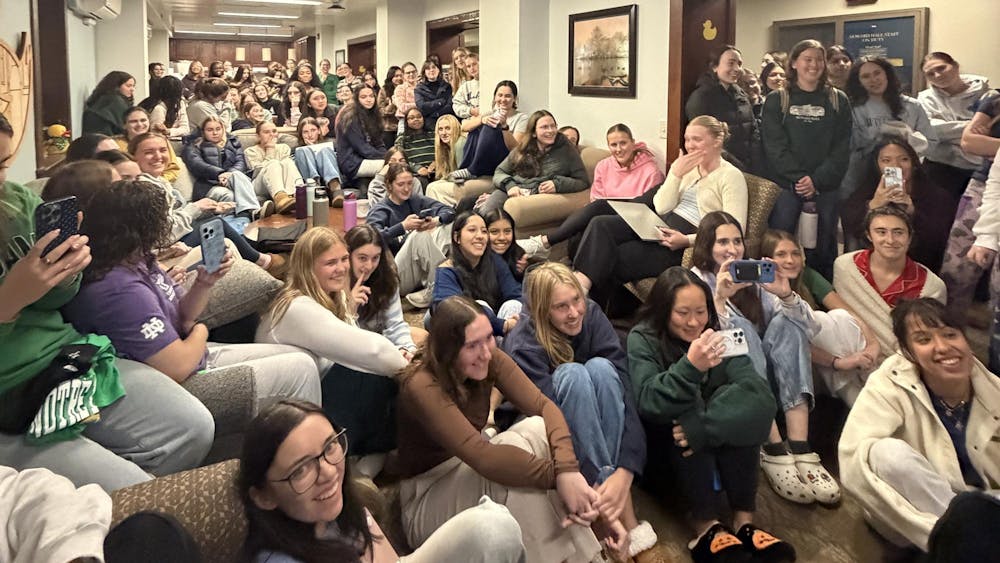New York Times journalist Nikole Hannah-Jones spoke about the foundations of her Pulitzer Prize-winning initiative, The 1619 Project, and the current movement for racial justice as part of the second installment of Notre Dame’s “Building an Anti-Racist Vocabulary” series Friday. Hannah-Jones, a 1998 Notre Dame alumna, also discussed her time at the University during the lecture held remotely over Zoom.
Dory Mitros Durham, associate director of the Klau Center for Civil and Human Rights, moderated the event.
To kick off the lecture, Durham asked Hannah-Jones about the start of the 1619 Project and how the year came to be so important to her and her work. Hannah-Jones thought back to an elective Black studies course she took in high school, and the effect it had on her.
“[I] was angered by how much we had not been taught,” Hannah-Jones said. “In that one semester, I learned more about the history of Black Americans and Black people in the world than I learned in my entire K-12 education up until that point. And I understood, even then, that that erasure was intentional.”
One of her teachers gave her a book entitled, “Before the Mayflower,” which discusses the arrival of the first enslaved Africans in 1619 to America. From that moment in high school, Hannah-Jones said, she became obsessed with that date and the lack of awareness in the United States toward its implications on society today.
The 1619 Project is an initiative by The New York Times Magazine that examines the lasting consequences of slavery in America. The project was released in 2019, the 400th anniversary of the advent of chattel slavery in America.
“Nothing about our country has been left untouched by the legacy of slavery, even though we don't know it,” Hannah-Jones said about the aim of the project. “I really wanted us to do a project that would show that slavery is not in the past, that we are still living with that legacy.”
Hannah-Jones continued by briefly tracing the ties of democracy, capitalism, the healthcare debate and the nation’s highway system to the institution of slavery and Black Americans’ resistance to subjugation.
“[Black Americans are seen as] a problem to our democracy…I'm trying to really use history and the truth of history to turn that narrative on its head,” she said. “Through Black resistance: resistance to their enslavement, resistance to discrimination, resistance to racial apartheid, resistance to a country that was not a democracy that increased democracy abroad, that we ought to force [our founding ideals] to apply to all people; and that really has been the legacy of Black Americans.”
Durham also asked Hannah-Jones to respond to the backlash that she received in regards to the 1619 Project. Hannah-Jones said that while she expected a negative response from the right-wing, she was surprised by the active effort of some historians to discredit her work.
Nearing the end of her lecture, Hannah-Jones discussed the current resurgence in the Black Lives Matter movement that the country and posed the audience with a set of questions.
“Will this moment just feel different or will it actually be different?” Hannah-Jones asked. “I think where my lack of hope comes from is that in our 401 year being on this land, why should we still have to be marking progress towards equality?”
To conclude the lecture, Hannah-Jones offered words of advice to Notre Dame students on how to create a more accepting society for everyone. She said her first semester at Notre Dame was a challenging one, and encouraged students to be there for their peers.
“What's so important is not presuming, not letting your own assumptions about people’s backgrounds and what people are capable of,” Hannah-Jones offered. “If you really want to be a resource you have to be able to listen and have to be able to ask the questions.”
Read More
Trending









